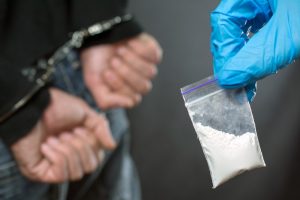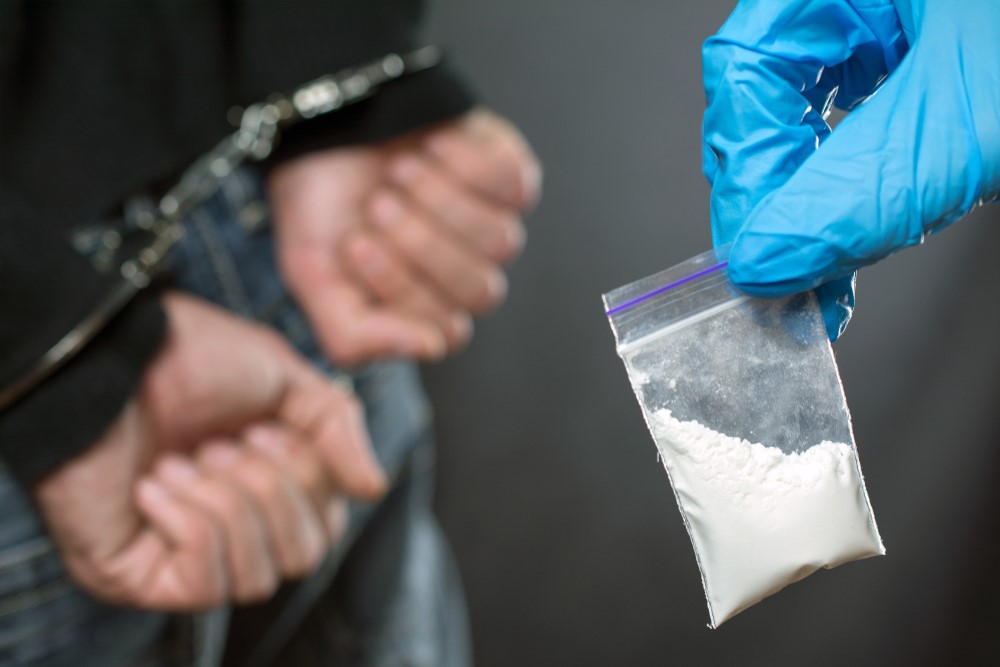By: Jenny HernandezAustria
 You look outside your window and see your neighbor acting strange. He is out on the street walking erratically and is taking his shirt off. You look closely and realize his eyes are glassy and he appears unaware of his surroundings. You are concerned for him, but do not want to approach him due to his erratic behavior. Clearly there is something wrong, so you help the best way you know how. You call 911 and ask for help. Shortly thereafter the police arrive at your house. They try to talk to your neighbor and call for medical assistance to check him. Once your neighbor is cleared by the medics, the police arrest him for possession of drugs.
You look outside your window and see your neighbor acting strange. He is out on the street walking erratically and is taking his shirt off. You look closely and realize his eyes are glassy and he appears unaware of his surroundings. You are concerned for him, but do not want to approach him due to his erratic behavior. Clearly there is something wrong, so you help the best way you know how. You call 911 and ask for help. Shortly thereafter the police arrive at your house. They try to talk to your neighbor and call for medical assistance to check him. Once your neighbor is cleared by the medics, the police arrest him for possession of drugs.
Despite coming to the aid of your neighbor, you feel guilty. Your good deed carries the consequence of your neighbor facing serious charges and potential jail time. Now imagine another scenario where you see your neighbor completely unconscious laying on the ground. You behave the exact same way, but this time no criminal charges follow your neighbor.
Before Virginia amended Code 18.2-251.03 in 2020, the state had few limitations on criminally prosecuting individuals requesting assistance in a drug overdose emergency should contraband be found at the scene.[1] This new “Safe Harbor” statute prohibits the Commonwealth from pressing charges against an overdose victim if assistance is requested at the scene.[2] The statute defines an overdose as a “life threatening condition resulting from the consumption or use of a controlled substance…” However, the statue’s definition of a “life threatening condition” is vague and open to interpretation by the courts.[3]
How the courts interpret a life-threatening situation will determine how effective the modified statute will be in the coming years. If the courts demand an unconscious defendant to warrant a life-threatening situation, then we could see the effectiveness of the statute significantly reduced.
Moreover, the scope of what constitutes a life-threatening situation or overdose, could have drastic impacts on residents suffering from drug abuse. When a resident decides to call for assistance, the police will be called as part of that response. The police will then determine how life threatening the situation was and whether to charge the user with a crime. If there is a narrow interpretation of the statute, police will be more likely to charge the individual. Even if the court dismisses the charges, there is still a long legal process facing the person charged. Rather than providing a safe harbor, it could lead to more arrests and suffering.
The regular citizen will not know the specifics of the “Safe Harbor” statute. However, when they make that first call for help, how the drug user is treated will impact the caller’s behavior in the future. If they see the user criminally charged, they will be less likely to call for help again to avoid the user from suffering this fate. This could lead to dangerous life-threatening situations, as overdoses can sometimes have a less serious appearance. On the other hand, if they see the user receive medical treatment with no legal consequences, they are more likely to call if the situation arises in the future.
Additionally, medically speaking an overdose can manifest itself with varying symptoms beyond a person being unconscious.[4] Opioid overdoses can result in a person being passed out or the person could appear awake but unresponsive.[5] Other drugs and controlled substances can also have vastly different symptoms or signs of an overdose.[6] The person requesting assistance or the police could have no idea what the user has ingested. The user could be close to overdosing or experiencing an overdose without anyone knowing. If the Safe Harbor statute is applied broadly, it will encourage action as soon as possible. It will help prioritize the health and safety of individuals over punishment and incarceration.
The intended goal of this statute is to save lives.[7] Reaching that goal will require law enforcement and the courts to recognize that goal and apply a broad scope on a life-threatening situation. If a limited scope is applied, it could result in little change and more needless deaths due to drug abuse.
[1] Commonwealth v. Allen, 2021 Va. Cir. LEXIS 134
[2] Va. Code Ann. § 18.2-251.03 (2021)
[3] Id.
[4] See, e.g., Fentanyl Facts, Centers for Disease Control and Prevention (July 19, 2021), https://www.cdc.gov/stopoverdose/fentanyl/?s_cid=DOC_Fentanyl_PaidSearch_008&fbclid=IwAR27y67Ct_DnD93kHme4FYU0b9KpgcsrkRpUZBcHzgURjRXnOTNJIhLxFkE
[5] Id.
[6] See, e.g., Matthew Bender & Company, Inc., Adverse Effects of Oxycodone, Attorney’s Dictionary of Medicine (Aug. 2021)
[7] Cynthia Abrams, General Assembly passes bill extending legal protections in circumstances of overdose, Rappahannock News (Mar. 30, 2021), https://www.rappnews.com/news/government/general-assembly-passes-bill-extending-legal-protections-in-circumstances-of-overdose/article_0183c0da-91d4-11eb-9258-1f9a46425958.html?fbclid=IwAR0wfNzvEgclp6I9rmdA8oNpiX_Mp3F6A2kwSDI44ApRKvsuvdqmdsvrJGI.

